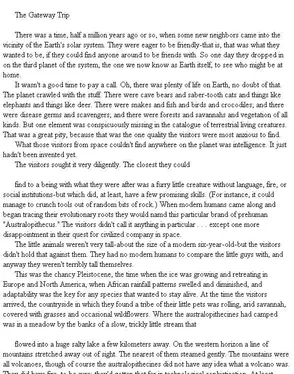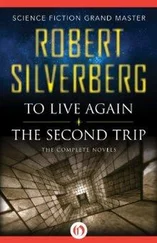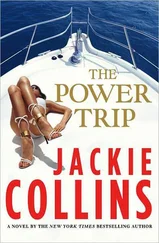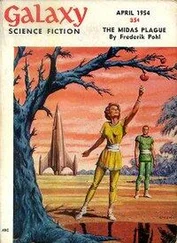Pohl, Frederik - The Gateway Trip
Здесь есть возможность читать онлайн «Pohl, Frederik - The Gateway Trip» весь текст электронной книги совершенно бесплатно (целиком полную версию без сокращений). В некоторых случаях можно слушать аудио, скачать через торрент в формате fb2 и присутствует краткое содержание. Жанр: Старинная литература, на английском языке. Описание произведения, (предисловие) а так же отзывы посетителей доступны на портале библиотеки ЛибКат.
- Название:The Gateway Trip
- Автор:
- Жанр:
- Год:неизвестен
- ISBN:нет данных
- Рейтинг книги:4 / 5. Голосов: 1
-
Избранное:Добавить в избранное
- Отзывы:
-
Ваша оценка:
- 80
- 1
- 2
- 3
- 4
- 5
The Gateway Trip: краткое содержание, описание и аннотация
Предлагаем к чтению аннотацию, описание, краткое содержание или предисловие (зависит от того, что написал сам автор книги «The Gateway Trip»). Если вы не нашли необходимую информацию о книге — напишите в комментариях, мы постараемся отыскать её.
The Gateway Trip — читать онлайн бесплатно полную книгу (весь текст) целиком
Ниже представлен текст книги, разбитый по страницам. Система сохранения места последней прочитанной страницы, позволяет с удобством читать онлайн бесплатно книгу «The Gateway Trip», без необходимости каждый раз заново искать на чём Вы остановились. Поставьте закладку, и сможете в любой момент перейти на страницу, на которой закончили чтение.
Интервал:
Закладка:
There was also travel; and, perhaps most popular of all, there was work.
After all, the basic human work is only a kind of date processing. Humans don't dig the foundations for skyscrapers. Machines do that; all the humans do is run the machines, and that could be done as readily from machine storage as in the flesh.
All those books that the deceased had been meaning to read-the plays, the operas, the ballets, the orchestral performances-now there was time to enjoy them. As much time as he chose. Whenever he chose.
That svas heaven indeed. The dead person's style of life was
exactly what he wanted it to be. He didn't have to worry about what he could "afford" or what was "bad for him." The only limit was his own desire. If he wished to be cruising in the Aegean or sipping cold rum drinks on a tropical beach, he only had to order it. Then the datastores would summon up any surround he liked, as detailed as any reality could be and just as rewarding. It was almost like living in a perfect video game. The operative word is
"perfect," for the simulations were just as good as the reality; in fact they were better: Tahiti without mosquitoes, French cuisine without gaining weight, the pleasure in the risks of mountainclimbing without the penalty of being killed in an accident. The deceased could ski, swim, feast, indulge in any pleasure . . . and he never had a hangover.
Some people are never happy. There were a few of the formerly dead who weren't satisfied. Sipping aperitifs at the Cafй de la Paix or rafting down the Colorado River, they would take note of the
taste of the Campari and the spray of the water and ask, "But is it real?"
Well, what is "real"? If a man whispers loving words to his sweetheart on the long-distance phone, what is it that she "really" hears? It isn't his own dear voice. That was a mere shaking of the atmosphere. It has been analyzed and graphed and converted into a string of digits; what is reconstituted in the phone at her ear is an entirely different shaking of the air. It is a simulation.
For that matter, what did she hear even when her darling's lips were only inches away? It was not her ear that "heard" the words. All the ear does is register changes in pressure by their action on the little stirrup and anvil bones. Just as all the eye does is respond to changes in light-sensitive chemicals. It is up to the nerves to report these things to the brain, but they only report coded symbols of the things, not the things themselves, for the nerves cannot carry the sound of a voice or the sight of Mont Blanc; all they transmit is impulses. They are no more real than the digitized voice of a person on a phone.
It is up to the mind that inhabits the brain to assemble the~e coded impulses into information, or pleasure, or beauty. And a mind that happens to be inhabiting machine storage can do that just as well.
So the pleasure, all the pleasures, were as "real" as pleasure ever is. And if the mere pursuit of pleasure began to pall, after a (subjective) millennium or two, he could work. Some of the greatest music of the period was composed by "ghosts," and from them came some of the greatest advances in scientific theory.
It was really surprising that, nevertheless, so many people still preferred to cling to their organic lives.
All of this led to a rather surprising situation, though it took awhile for anyone to realize it.
When the Gateway explorers started bringing back useful Heechee technology, the world population on Earth wasn't much more than ten billion. That was only a tiny fraction of all the human beings who had ever lived, of course. The best guess anybody would make about the total census was-oh, well, maybe-let's say, somewhere around a hundred billion people.
That included everybody. It included you and your neighbor and your cousin's barber. It included the president of the United States and the pope and the woman who drove your school bus when you were nine; it included all the casualties in the Civil War, the American Revolution, and the Peloponnesian Wars, and their survivors, too; all the Romanovs and Hohenzollerns and Ptolemys, and all the Jukes and Kallikaks, as well; Jesus Christ, Caesar Augustus, and the innkeepers in Bethlehem; the first tribes to cross the land bridge from Siberia to the New World, and also the tribes who stayed behind; "Q" (an arbitrary name assigned to the unknown first man to make use of fire), "X" (the arbitrary name of his father), and the original African Eve. What it included was everybody, living or dead, who was taxonomically human and born before that first year of Gateway.
That came, as we said, to a grand total of 100,000,000,000 people (give or take quite a lot), of whom the great majority were deceased.
Then along came Heechee, or Heechee-inspired, medicine, and things got started.
The numbers of the living meat people doubled, and doubled again, and kept on doubling. And they lived longer, too. With modern medicine, they didn't die before they wanted to. With medical encouragement and no painful penalties, they generally
and generally lots of them. And when they did Well, when they did "die" they also still "lived" in mechanical
storage, and among that growing electronic population there were no fatalities at all.
So the number of the living continued to increase, while the number of the truly dead remained essentially static, and the result was inevitable. But when the point was reached it still took everyone by surprise; for at last in human history the living outnumbered the dead.
All of that had some interesting consequences. The eighty-year-old woman writing her X-rated memoirs of youthful indiscretions couldn't drop the names of video stars, gangsters, and bishops anymore-not unless the indiscretions had really happened, anyway-because the video stars, gangsters, and bishops were still around to correct the record.
It was a great plus for the oldest persons in machine storage,
though. The names that they dropped from their meat days were
well and truly dead, and in no condition to dispute the stories.
It wasn't bad to be a meat person anymore. Hardly any of them
were poor.
Well, they weren't money poor. Not even on Earth. Nor were they poor in possessions. All their factories with all their clever robots were turning out smart kitchen appliances and fun game machines and talk-anywhere video-telephones, and they were doing it all the time. The cities got really big. Detroit led the way in the old United States, with its three-hundred-story New Renaissance megastructures that covered everything from Wayne State University dormitories to the river; a hundred and seventy million people lived in that crystal ziggurat, and every one of them had personal TVs with three hundred channels and holographic VCRs to fill any gaps left by the networks. Out in the Navajo reservation the tribe (now eighty million strong) erected a more-than-Paolo-Soleri arcology; the lowest forty stories produced frozen diet meals, clothing, and woven rugs for the tourist trade, and all above was filled with extended Navajo families. On the sands of the Kalahari Desert, the
!Kungs entered a life of plenty and ease. China reached twenty billion that year, each family with its fridge and electric wok. Even in Moscow the shelves of the GUM department store were loaded with clock radios, playing cards, and leisure suits.
There wasn't any problem producing anything anyone wanted anymore. The energy was there; the raw materials cascaded down from space. Agriculture had become as rationalized as industry at last:
robots planted the fields, and robots harvested the crops-genetically tailored crops, enriched with artificial nonpolluting fertilizers and trickle-irrigated, drop by drop, by smart, automatic valves. And the whole, of course, supplemented by the CHON-food factories.
Читать дальшеИнтервал:
Закладка:
Похожие книги на «The Gateway Trip»
Представляем Вашему вниманию похожие книги на «The Gateway Trip» списком для выбора. Мы отобрали схожую по названию и смыслу литературу в надежде предоставить читателям больше вариантов отыскать новые, интересные, ещё непрочитанные произведения.
Обсуждение, отзывы о книге «The Gateway Trip» и просто собственные мнения читателей. Оставьте ваши комментарии, напишите, что Вы думаете о произведении, его смысле или главных героях. Укажите что конкретно понравилось, а что нет, и почему Вы так считаете.












